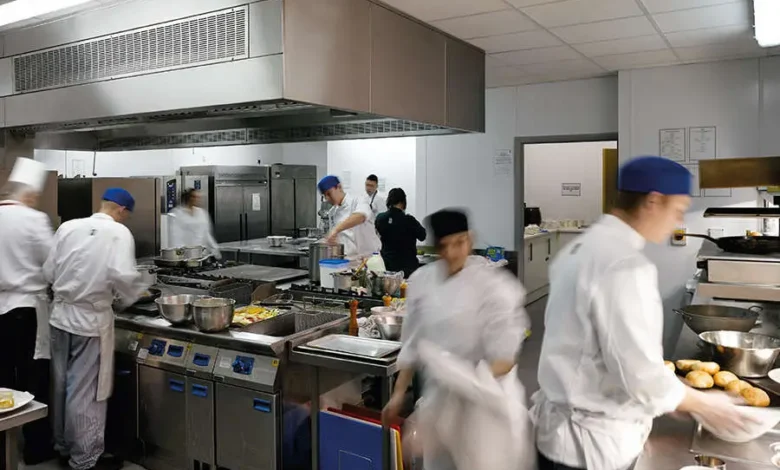
- Learn Your Knife. Like, Really Learn It
- Mise en Place Isn’t Just Fancy French
- You Don’t Know Everything
- Speed Comes Later Focus on Doing It Right First
- Respect Goes Both Ways
- You’ll Screw Up. Own It
- Look After Yourself Too
A Real Survival Guide for Kitchen Newcomers
By Ekim Chef,
When I first walked into a real kitchen, I thought I had a clue. I’d done some serving, watched way too many cooking shows, and figured I could hold my own. I was wrong.
It was loud, hot, intense and totally different from what I expected. But I also found something real in there: purpose, adrenaline, and a team that works like a weird, chaotic family.
So if you’re just starting out in the kitchen, here’s what I wish someone had told me.
—
1. Learn Your Knife. Like, Really Learn It.
Your knife is your best friend (or worst enemy if you’re careless). Learn how to hold it, how to chop without fear, and keep it sharp. A dull knife is more dangerous than a sharp one trust me, I’ve got the scars to prove it.
—
2. Mise en Place Isn’t Just Fancy French
This just means “everything in its place,” but it’s more than that. Before service, get everything ready your ingredients, your tools, even your mindset. When the tickets start flying in, you won’t have time to think. You’ll just do. And if you’ve done your prep right, you’ll be okay.
—
3. You Don’t Know Everything (and That’s Okay)
Even if you’ve cooked at home for years, this is different. You’re going to mess up. You’re going to get corrected. Don’t take it personally. Listen, learn, and keep showing up. That’s how you grow.
—
4. Speed Comes Later Focus on Doing It Right First
You’ll feel slow at first. Everyone does. But don’t cut corners to keep up. Do it right even if it takes a little longer. The speed will come. Consistency matters more than racing.
—
5. Respect Goes Both Ways
Respect the people around you the head chef, the porter, the dishwasher. Everyone plays a part in keeping things moving. Kitchens work best when there’s mutual respect, no matter your role.
—
6. You’ll Screw Up. Own It.
You’ll drop stuff. You’ll burn something. You might even serve it by accident (hopefully not). When it happens, admit it and fix it. Trying to hide mistakes only makes things worse.
—
7. Look After Yourself Too
Drink water. Grab a bite when you can. Take five minutes to breathe if you’re overwhelmed. This job is physically and mentally tough don’t run yourself into the ground trying to prove something.
—

